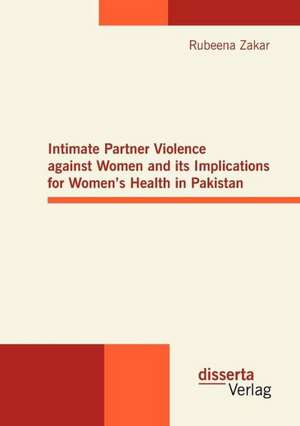Intimate Partner Violence Against Women and Its Implications for Women's Health in Pakistan: Der Kriegsverbrecherprozess in Kambodscha
Autor Rubeena Zakaren Limba Engleză Paperback – 31 aug 2012
Preț: 469.56 lei
Nou
Puncte Express: 704
Preț estimativ în valută:
89.88€ • 97.66$ • 75.55£
89.88€ • 97.66$ • 75.55£
Carte disponibilă
Livrare economică 31 martie-14 aprilie
Preluare comenzi: 021 569.72.76
Specificații
ISBN-13: 9783954250806
ISBN-10: 3954250802
Pagini: 384
Dimensiuni: 148 x 210 x 20 mm
Greutate: 0.46 kg
Editura: Disserta Verlag
ISBN-10: 3954250802
Pagini: 384
Dimensiuni: 148 x 210 x 20 mm
Greutate: 0.46 kg
Editura: Disserta Verlag
Notă biografică
Rubeena Zakar is currently assistant professor in the Institute of Social and Cultural Studies, University of the Punjab, Lahore, Pakistan. She earned her Bachelor degree in Medicine and Surgery (MBBS) from Karachi University (1998); Master¿s in Population Sciences from Punjab University (2006); and Ph.D in Public Health from Bielefeld University, Germany (2012). She worked as a resident gynecologist in Sheikh Zaid Medical Complex, Lahore in 2001 and was associated as researcher in the Department of Public Health Medicine, Bielefeld University, Germany from 2006 to 2012. Her research interests include intimate partner violence, women¿s health in developing countries, inequalities in health care utilization, infant and child health, and women¿s rights in cross cultural perspective. She has presented various papers in international conferences and also has published several research articles in peer reviewed journals.














